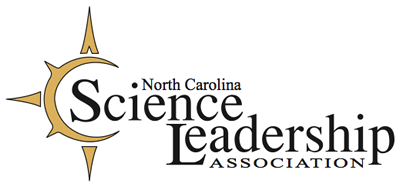Position Statement
Statement on Virtual Learning
The North Carolina Science Leadership Association’s (NCSLA) mission is to provide opportunities for leaders in both formal and informal science education by offering a forum to exchange ideas and information, advancing quality STEM instruction, and influencing education policies and legislation. Our vision for science education in North Carolina is to engage in authentic networking, celebrate science educators, support emerging science education leaders and advocate innovative practice in North Carolina.
On March 14, 2020, Governor Cooper issued a stay-at-home order, which effectively led to the suspension of school for the rest of the 2019-2020 school year. Public schools moved to a remote learning environment. As expected, this was implemented to the best of the ability of each school and LEA. Sadly, an unfortunate unintended result was that this action significantly reduced incentives for learning for many students; learning was ended for far too many students as a result.
On March 27, the State Board of Education approved policy from DPI that seniors would receive a pass or withdrawal for each course based solely on their average on March 13.
On April 23, the State Board of Education approved further policy from DPI for K-11 students. Upon their direction, 9-11 students’ grades would also be based solely on students learning as of March 13. Based on the direction from the state board of education, student grades were “held harmless” due to remote learning. Grades no longer represented learning of the complete course. Multiple interpretations of the policy by districts emerged across the state. It has been our experience that the majority of public school students were now demotivated to complete further learning in each course.
Looking forward to the 2020-2021 school year and the challenges that will likely take place, we, as science teachers, would like to encourage and promote the academic interests of NC public school students by expressing the need for concerted leadership. We want to learn from this last quarter of remote learning and ensure quality science education for all NC public school students. Regardless of whether we continue with total off-campus learning environment or move to some blended model to accommodate distance learning, we call attention to science teaching and learning needs.
Guidance focused on learning. Much of the guidance at the state level so far has focused on grades. As laboratory-based instruction is paramount for learning science, we need state level policies in directing schools to provide time and materials for laboratory activities and provide funds for implementing these activities in the new models. Schedules should consider how inquiry-based instruction and constructivist teaching practices can be structured for each class and how schools will facilitate teacher-student interactions in remote and blended environments.
Relevant Professional Development. Laboratory experiences in face-to-face classrooms will look different in virtual or blended classrooms. Virtual labs do not take the place of classroom-based labs, yet they do provide unique learning opportunities. Teachers have acquired skills in teaching face-to-face labs. Teachers need professional development in designing and facilitating laboratory experiences that will bridge gaps and take advantage of the unique environments in which their students will now learn. Funding for teachers to participate in professional development such as conferences and workshops is paramount to strengthening student learning, especially science teachers in their first five years of teaching.
Support for professional competencies. Guidance counselors, social workers and nutrition officers have directives and training to accommodate inequalities. Let them identify and assist students with the resources needed on an individual level without holding the whole school or district hostage to progress.
Guidance with accessible resources and best practices. Because of the quick transition to remote learning, teachers were not trained in remote learning pedagogies. State resources should facilitate ways to disseminate best practices for engaging in science subjects. A clearinghouse of online resources could be provided without endorsing one company over another.
Partnerships in understanding and building on new norms. The quick transition to remote learning has brought different challenges to the classroom. Besides digital inequities, some students must now serve as caregivers, some students lack role models, while others are distracted by the lack of space to adequately work on academics. Applicable research on engagement, motivation, AI, and technology-driven instruction should be shared with teachers as they make plans for the next school year.
Finally, ensure science teachers have a voice in policy decisions that will impact science teaching and learning. Most policy makers are not aware of the unique challenges of teaching science. The pandemic has hopefully heighted our appreciation of science education and the value of ensuring the next generation of scientists. Enlist science teacher input planning for the next school year by placing a variety of teachers on NCDPI boards that make legislative decisions.
Thank you for your time and attention to these issues. We look forward to working together in improving science education for all NC public school students.
Your Advocacy Committee Members,
Carla Billups - President Elect
Dorothy Holley - NCSLA Fellow
Dennis Kubasko - President
Beverly Lyons - Past President
Glasher Robinson - Committee Member
Tom Savage - Committee Chair
Lindsay Smith - Committee Member
Christi Whitworth - Executive Director
